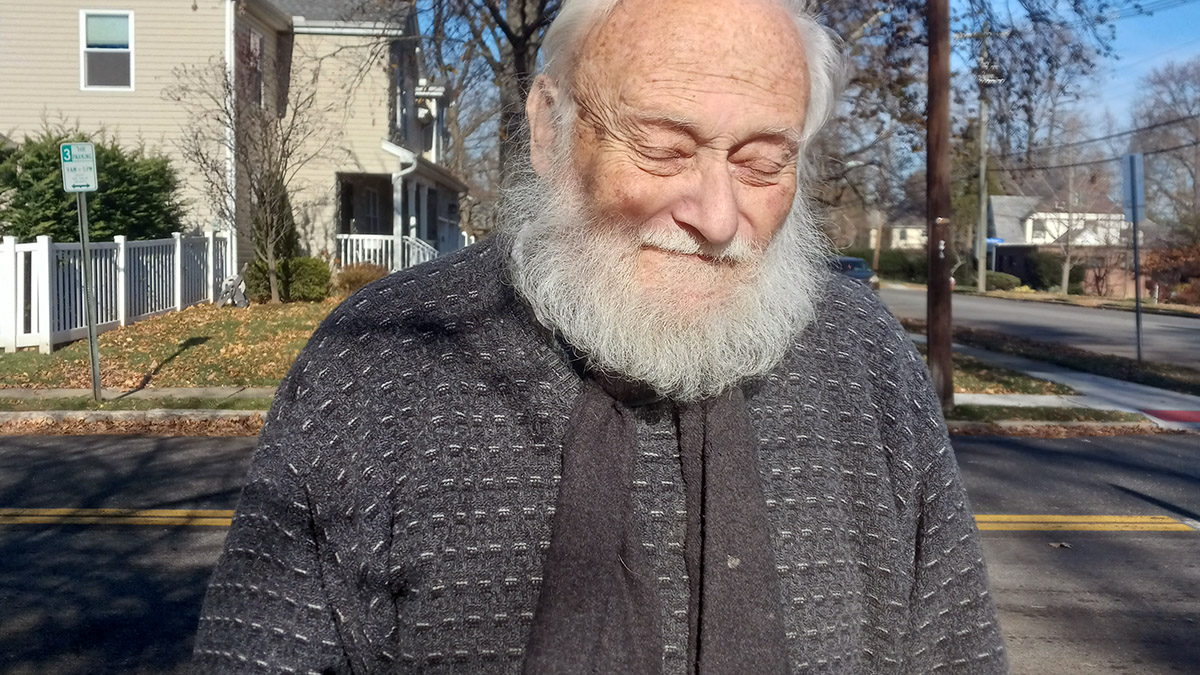The Birthday Blues: Why Some of Us Feel Sad Around Our Birthday
Feeling depressed around your birthday isn't uncommon. Here's what you can do to make the situation more tolerable.
Dec 19, 2023
Gary spent his 48th birthday at work, hauling junk. He didn't talk about the significance of the day with his work buddies — or anyone else, for that matter. In fact, Gary, who asked to keep his last name private, hasn't celebrated a birthday in years.
He dreads turning 50. "Fifty is holy Moses!" he says, "I still think I'm 25 in my head."
Birthdays — and holidays — have made him sad ever since his mother died when he was 36. He misses her, and even more so on occasions when they would have been together. With each birthday, he also feels the weight of regrets and the mistakes he's made in his work life. "I haven't used my time well," he confesses, adding, "but other people deal with worse."
That's true. "I have a number of close friends and family members who experience low mood on their birthdays," says Ash King, a psychologist and social media researcher in Sydney. Feeling sad, self-critical, or regretful, as Gary does, isn't uncommon. The "birthday blues" have many causes, and some of them have deep roots. Research even shows an uptick in suicides on birthdays among middle-aged men in the United Kingdom and in Japan, on milestones like turning 40.
Don't assume you can jolly someone out of this state. A surprise party — or even an extravagant trip — can backfire. Instead, "be sensitive and mindful of how other people experience their birthdays and what they might need during those times," King says. "I think we should follow our friends' lead."
That doesn't always mean doing nothing — you might send a bouquet, plant, or card — but don't push.
Are you depressed or suffering from anxiety?
Gary confesses he's depressed, although he's not in treatment. About 1 in 5 adults in the U.S. are diagnosed with depression in their lifetime, and many more live with symptoms — insomnia, low energy, aches and pains, lack of appetite or enthusiasm — without seeking medical care. Like Gary, they may try to ignore their birthdays to avoid a downward mood swing. Celebrations just aren't in sync with their feelings. If you're carrying around shame or guilt, feeling as if you don't deserve gifts or attention is natural. If you are deeply sad or angry, putting on a gracious face for friends, coworkers, or family might just seem phony, or a burden.
Depression can also produce agitation, marked by fear rather than sadness. As Alexandra Koster writes in her 2022 article titled "Yes, There's a Reason Why You Cry on Your Birthday Every Year," "When my birthday approached, I found myself feeling uneasy and perpetually nauseous. I couldn't leave the house without a pit in my stomach, and you could practically feel the anxiety living it up in the back of my throat. The idea of planning a birthday event was panic-attack-inducing."

Recalling your childhood or teen birthdays may help you understand or soothe your adult birthday blues. Gary remembers that his mother made an effort to make his childhood birthdays fun. "They weren't so great — but she tried," he says.
Jim White's birthday was only a day apart from his father's. "I kept wondering why he hated me," says White, a retired lawyer. His father had had a hard childhood, and, White believes, he may have resented his more fortunate son. The memory of feeling resented, White suspects, was one reason his own birthdays were tough for decades.
For many people, the risk of rejection is overwhelming. Some traumatic associations are obvious: the unexpected breakup or a car crash after a drinking party that has poisoned all birthdays for you. Others are subtle and half forgotten. Maybe you noticed that other kids got fancier presents and understood that your family's finances were shaky.
But even without depression or trauma, resisting the idea that you're older is common. We watch people age in ways that cause pain to themselves and others, and we don't want to follow in those footsteps. If unwrinkled skin and a full head of hair are important to your self-esteem, then every birthday feels like proof you're becoming less attractive. Like Gary, you might be disappointed in your progress, wishing things had gone differently.
Deaths are linked to birthday blues
White, who turned 76 in October, began to feel especially bad around his birthdays in his 30s, after his father-in-law died young. His own mortality loomed: "I just came closer and closer to what I knew would eventually be my death. This was upsetting to me," he says, "It isn't so much now." He worried that he wouldn't be alive to help his friends and family as tragedies came their way.
Honoring the memory of loved ones has helped him feel better about his own birthday. For years, he sent his mother spring bouquets on her birthday, often through 1-800 Flowers.com. When she died, the next year he sent his sister tulips on her birthday, and he has kept up the tradition ever since.
By his 60s, White lost his birthday blues. People just kept dying — and he stopped fighting the idea. Instead, he reached out in his mind to his late grandmother and mother. "What made me feel better was very consciously evoking the presence of family members who are dear to me," he says. When he turned 65, he gave himself a grand bash at a beloved church and established a fund in his mother's name.
What you can do
If you know someone who struggles with the birthday blues, you can show you care by remembering quirks and indulging them in quiet ways. For instance, if your sister loves peach cobbler, bring her one with a single candle and let her eat it later, alone. Or send her a simple bouquet. The key is that she can enjoy it privately, on her own schedule.

White's wife and children always arranged low-key family celebrations for him, and his sister reciprocated his gifts, sending him autumnal arrangements. "Oh, they were wonderful," he says. "They did make me feel better." Eventually, she switched to sending him home-cooked hams, one of his favorite meals.
Ask about birthday memories, and let your friends and family tell you about the awful ones. If you've had your own bad birthdays, you can share that too. One option is to recognize a birthday, without too much fanfare, at another time. For example, you could arrange theater tickets on a date a month before or after a birthday and tell the recipient casually at the theater that the ticket is your birthday gift.
If you're struggling with your own birthday, try to be proactive. Pull out a journal and write about why you're feeling down, King suggests. But don't use your journal as a way to beat yourself up. Instead, put your feelings into perspective with phrases like "Anyone would feel bad if..." Writing about emotional pain works best if you practice self-compassion. Also consider booking yourself a manicure or buying yourself a small treat, just in case it helps. And go ahead — tell friends that birthdays are difficult for you.
Birthday blues, on their own, are not an immediate cause for concern. They could, however, be a sign of a "deeper psychological issue," including clinical depression, King notes. Along with feelings of "hopelessness, worthlessness, and despair," the danger signs include an unrelenting low mood that lasts more than two weeks, with disrupted sleep and eating patterns. Any of these are cues to seek help.
Birthdays aren't happy occasions for all of us. They can be painful reminders of the swiftly passing years, and can act as triggers for memories we'd rather forget. Remember that the next time yours, or that of someone you care about, rolls around, and to be kind to yourself, and others.








